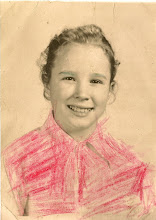I have just read War and Peace for the fourth time in my life. This time I really loved it and understood it. I must be old enough now--almost seventy. A friend who was reading it at the same time asked me what I thought of Tolstoy's theory of history, and of the character of its major character Pierre, who seemed to him "an intelligent oaf," who did not use his intelligence to further himself socially. This was my response:
I think Tolstoy is exceptionally gifted, not only for his views, which he explains very clearly, but also because they show such obvious investment of thought, but also for his characterizations of people. These always are universal depictions, not stereotypical; moreover, they develop in a natural (ie organic) and coherent way and in ways also furthering the plot--I think that takes genius.
If Tolstoy is not (as you contend) learned about history in general, he certainly is learned about that particular period, the men in it, the war, and the Russian character. Given that, he's made use of the microcosm he knows and projected it logically, positing a formidable theory of history from it--almost scientific in nature. As I began reading it, I began thinking about statistics, into which his theories seem to fit perfectly. Total effects are made up of three kinds: indirect, direct, and spurious (T=D+I+S). I am surprised, given his personal understanding of mathematics and the rise of statistics historically which was occurring in the early 19th century at the time he was writing the book, that he himself did not try to express his theory in its terms. I thought of economic and social pressures on men as being the direct effects, the pressures brought to bear by powerful individuals (Alexander and Napoleon) indirect effects, and finally spurious--all those mysterious unknowns (the cholera you mentioned now becomes one of the direct effects) which Tolstoy sees as best taken care of by religion--or inferred by him, "God."
I thought of chaos theory and complexity--history, like the weather, can never be collectively controlled (only individually, as happens when we come inside when there's a blizzard outside), or explained in a way that satisfies everybody, because the very act of controlling or observing (as in history-telling) either one changes what is being controlled or observed it through time. (There is a great deal of discussion about this in Frederick Turner's writings--have you read anything by him? http://frederickturnerpoet.com/?page_id=14)
I think Tolstoy's method of writing is itself offers a sort of microcosm of, or format for, my preferred theory of history you asked for: he presents readers with a little summary (often, not always) of what is happening in the abstract and then goes on to people it with dialogue and fictional characters playing out what he has just told them. We want the "sweeping events" of history because they are like events in an individual's life to which we best relate--the collective view of such and such happening to such and such a population constituting an analogy with what an event in an individual's life might seem like to him. We can make an analogy of a war on a people being like a violent act of coercion being enacted by one person against another; and we usually do, perhaps because people think in metaphor and construct meaning on the basis of interconnected metaphor. But we also want a little of the lives of actual people depicted--naturally the ones who have the power and gave the orders and drew the plans (Dylan's "masters of war)--we think of Hitler, not his millions of minions. And we also want an understanding by way of summary, or abstraction. So I think all those elements need to be there for a story to emerge out of the collective (history) which would satisfy the most readers.
I never see Pierre as the "intelligent oaf," just intelligent. He is so hard at work thinking he appears to be an oaf, a do-nothing. But if he is indecisive, it's because he has the imagination to perceive moral questions from many often opposing perspectives, and the moral sensitivity to do nothing rather than to do something he is not sure is right and therefore might be wrong. With that moral sense of his being so immense, it would be out of character for him to have done anything to advance himself socially, to be so calculating. His motive for learning is to become a better man morally and ethically, thus preparing himself to be worthy of marriage (marriage for love in in its most ideal sense), the consumation of which contains the seeds of his future happiness. His deriving such happiness from responding successfully to the demands of sheer necessity during the march from Moscow while in captivity is really eye-opening and allows insight into his character--our universal character I should say. Yes, the peasant (and child, and fool) understands in a state of innocence what is often lost with experience, the insight into what is truly important and necessary for happiness. I am reminded of Blake's "We are blinded by the light"(...Simon and Garfunkel adding "...of God and truth and Right.")
What a GREAT book is War and Peace. In Joseph Ratner's introduction to Philosophy of Spinoza, he too talks about Spinoza's take on a theory of history and about Necessity.
Friday, October 25, 2013
Subscribe to:
Post Comments (Atom)

No comments:
Post a Comment